Unexpected Treat Earlier This Week
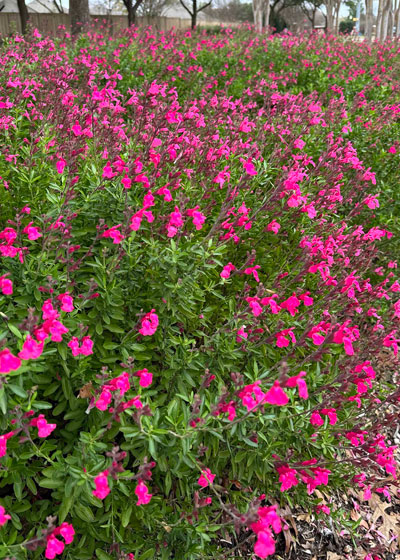
We’ve already had killing frosts or near misses in McKinney this fall. That’s why I was so surprised to see autumn sage (Salvia greggii) blooming beautifully on Eldorado Parkway between Ridge and Alma.
One of the few problems I have with perennials is that almost all types bloom for a couple of weeks, then they’re done for another entire year. (Think about daffodils, iris, daylilies, coneflowers, spider lilies, even mums. Most are “one-time-and-done.”) It’s not that I want to discourage planting any of these lovely flowers. It’s just that too many gardeners don’t understand that you have to use many different types to have a full year of color.
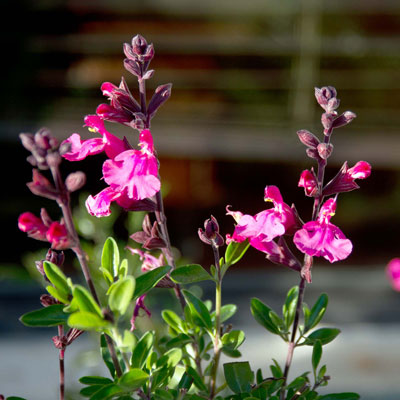
Well, here comes this little workhorse. It blooms from the first evidence of spring all the way until winter convinces it to shut down. In between, it holds up to the heat very well in the summer. Folks in Deep South Texas get to enjoy its blooms 12 months a year.
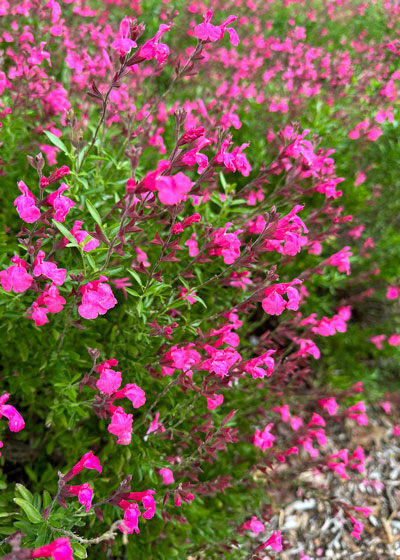
A summary of its assets…
• Autumn sage: Salvia greggii;
• Native Texas plant from the Hill Country and Southwest Texas;
• Perennial;
• Blooms almost all season long, unlike most other perennials;
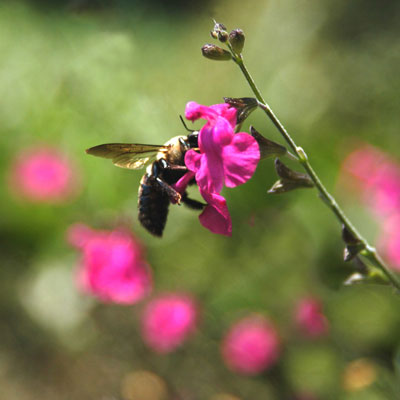
• Bees, butterflies and hummingbirds love it;
• Xeriphytic, which means it’s drought-tolerant;
• Virtually trouble-free;
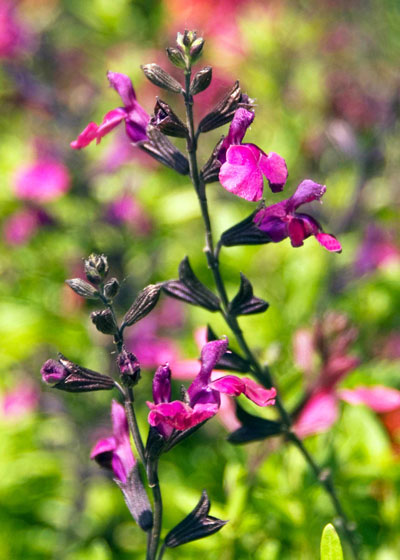
• Comes in a variety of flower colors, mostly reds, but also pink, purple, white and two-toned (white and red).
To be successful in growing it…
• Full or nearly full sun;
• Well-prepared garden soil – it needn’t be perfect, but rake out the roots, rocks and building debris and add in organic matter;
• Ensure good drainage;
• Buy color(s) that will blend with other plants around it;
• Space plants 18 to 24 inches apart;
• Little trimming will be needed first year;
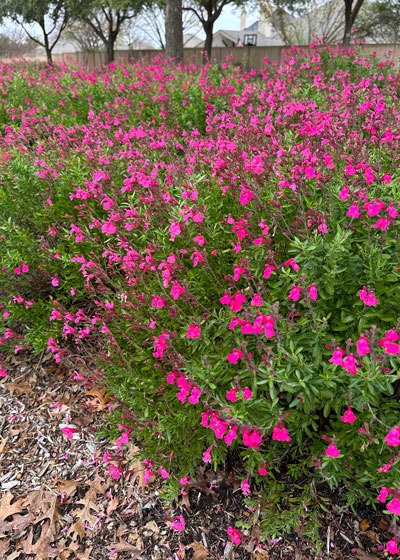
• Beginning second year, trim plants back by one-half in early February each year and by one-third in early August. (That basically parallels timing and amounts given for bush roses.)
• Apply high-N or even all-N fertilizer to keep plants vigorous.
• Properly tended, plants should last for many years.
